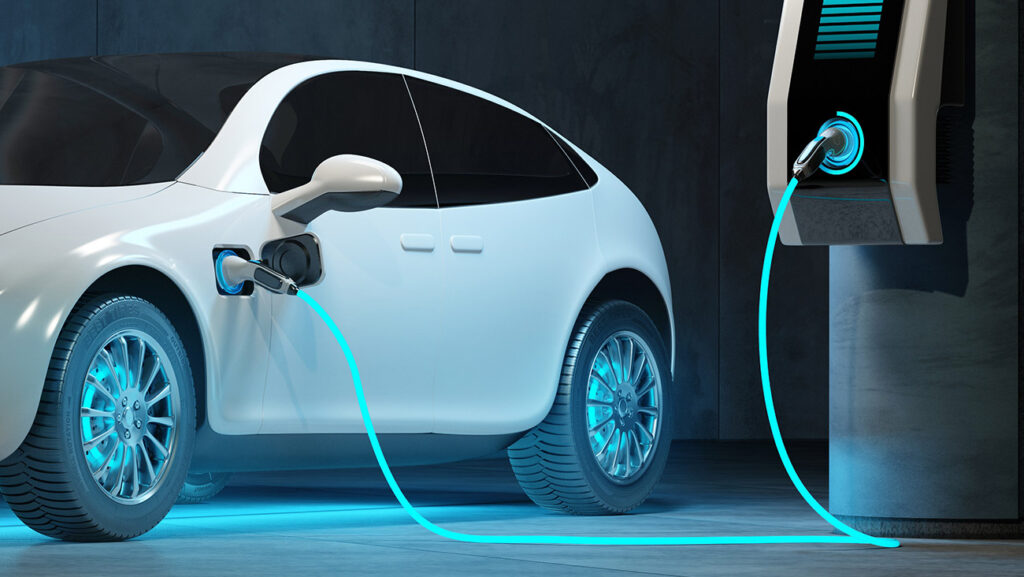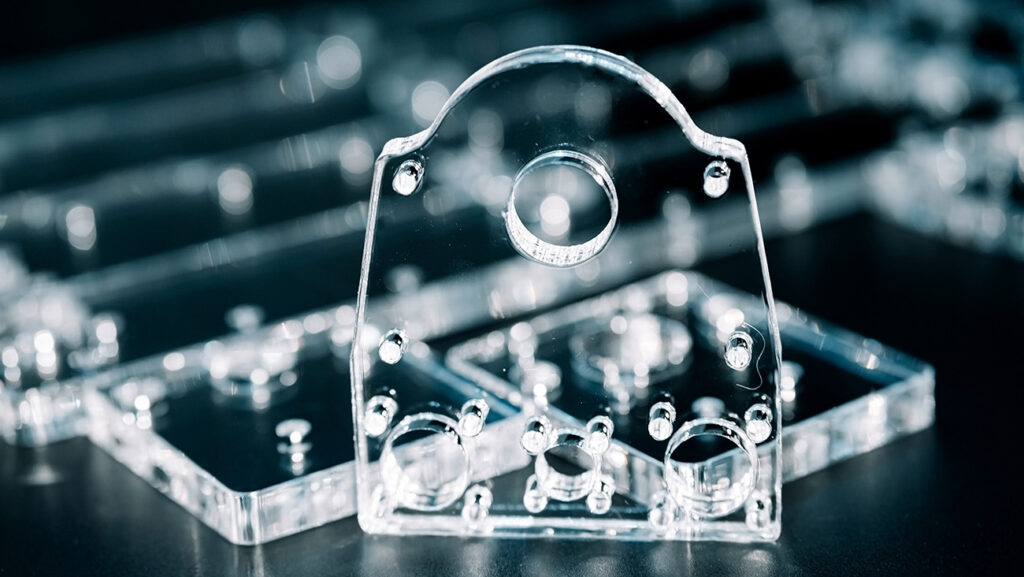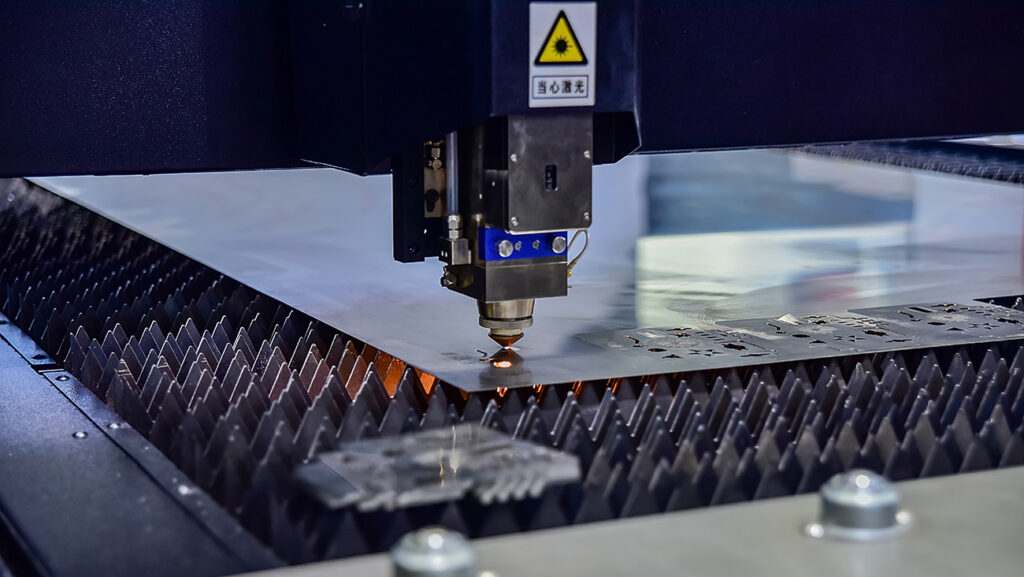5 Different Applications for Lasers within the Electronic Vehicle Market
Posted on October 31, 2022 in Blogs

There is a wide variety of materials used within the automobile industry, and the electronic vehicle (EV) market is no exception.
Modern automotive manufacturing uses plastics, textiles, metals, glass, carbon fiber, wood, and rubber, just to name a few. Accumet is home to over 26 lasers with a variety of output powers, ranging from a few tens of watts to many kilowatts. Our lasers are useful for a variety of different processes as well as materials. Low power levels are used primarily for marking and engraving while higher powers can cut and weld with speed and precision. It’s no wonder laser-processed components find their way into almost all areas of a vehicle.
How the EV industry can leverage laser applications
- Laser Welding
Laser welding offers high-efficiency and precision for OEMs and job shops. The technology, which produces fast, high-quality welds has long been considered the tool of choice for many fabricators. Laser welding is helpful with many applications in the EV market. The high-speed and precision that laser welding delivers allows manufacturers to compete against other forms of joining such as brazing, which can be very expensive. - Plastic Cutting
In the EV market, plastics are widely used. Plastic can be used as both a conductor and an insulator, so variations of the material are widely used. Plastic can be found in the propulsion, drivetrain, batteries, and body. It’s desired as it reduces vehicle weight to help EVs achieve greater driving ranges. Lasers are widely used in processing plastic parts. For automobiles specifically, lasers are used in the manufacture of interior panels, dashboard, bumpers, trims, and light housings.Lasers can be used to cut or drill holes for fixing points, lights, switches, parking sensors, and other components. Within all these different applications, there is a wide variety of plastics and composites, chosen for their specific properties. Acrylonitrile butadiene styrene (ABS), thermoplastic polyolefin (TPO), polypropylene, polycarbonate, high-density polyethylene (HDPE), and acrylic, are all commonly used. Various composites and laminates can also come into play. Many plastics can be cut precisely and cleanly by the laser, leaving a high-quality finish. These smooth edges won’t require post-process cleaning or further processing. - Aluminum Foil Cutting
The Electronic Vehicle market is consuming aluminum foil at a rapid pace. Batteries made with aluminum foil have high voltage, capacity, and are highly efficient. Not only can Accumet lasers cut foils with the utmost precision, our technicians are also?skilled in handling this very delicate material, promoting high yield production runs. - Textile Cutting
There are usually several different textile materials within a car interior. Lasers can be used for high-quality cutting and patterning of the fabric used for upholstery. Most synthetic textiles react well with the laser, offering clean cuts and sealed edges. In addition to fabrics being used for decoration and comfort, textiles are also used within a vehicle’s safety system — seat belts and airbags, for example. - Surface Marking and Texturing
The benefits of laser processing in the automotive industry are not restricted to simply welding, cutting, and drilling. Surface modification and laser marking on plastics or composites is quick and easy with our laser system. Surface modification may be required to promote better adhesion to an epoxy or paint. Laser marking may be required for identification purposes. Surface modification and laser marking depth can be tightly controlled and may replace a process previously done by hand. This saves time and ensures better quality.
Why Accumet?
A close examination of any modern consumer vehicle, including the electronic vehicle, will expose many components that have been touched by a laser in some way. Lasers offer outstanding versatility. Accumet offers over 50 years’ experience in processing a multitude of materials to meet your quality and production requirements. Contact us for more information or to request a quote today.
Read more



